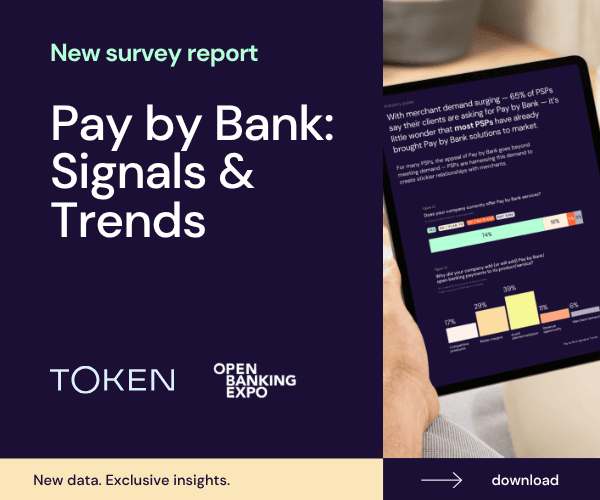The way in which businesses take payments from customers has been broadly consistent for a while. But by failing to embrace innovation, consumers and businesses alike are happily persisting with inefficient systems that create a host of preventable challenges and hurdles.
Since Open Banking was introduced in the UK in 2018 as part of PSD2 coming into effect, we have seen that the development of technology can create time and money-saving efficiencies across the board – saving businesses up to 150 hours of operational time per year [1].
Seven years on, Open Banking allows customers and businesses to securely and easily share their bank account data, such as bank details and transaction history. It has also enabled the making of payments seamless, without needing a card or sharing bank account details with the payee. All with a goal of championing faster payments, simpler invoicing and generally fewer time-intensive processes.
Reducing the risk of fraud
The first half of 2024 saw £571 million of funds stolen through payment fraud [2]. While banks were able to prevent £710 million falling into the hands of criminals, it poses a major headache for businesses across all sectors and industries.
Although a range of preventative measures have been put in place, such as payment consumer authentication, there is still a large margin for error. Open Banking-based solutions offer a much more secure and streamlined means of taking payments, mitigating the need to collect, use or store account or card details.

James Hodgson, chief executive officer, Payit by NatWest
The integration of measures, such as those outlined by PSD2, are crucial to enforcing this protection. Consumers being able to use their preferred security measure built into their device, whether that is a password, fingerprint or facial recognition, offers an invaluable layer of additional protection not available as part of more traditional payment mechanisms.
Minimising the risks associated with storing sensitive data
In recent years, there have been several high-profile examples of data breaches following cyber attacks, which can pose a major threat to consumers’ finances, as well as implicating businesses targeted by malicious groups. Earlier this year, Ticketmaster was reportedly targeted, which led to the potential exposure of over 500 million customers’ sensitive information [3].
By removing the requirement to take and store customer card details, this risk is nullified and the likelihood of a business potentially being at fault for a mass data breach is significantly reduced.
Unlocking more consistent cashflow
In order to establish growth opportunities, it is crucial that businesses are able to unlock access to capital as quickly and reliably as possible. Challenges associated with poor cashflow have a profound impact on day-to-day operations, with a quarter of UK SMEs citing cash flow challenges in 2024 [4]. Late payments (27%) and the speed of payments (27%) are the highest reported business inconveniences overall [1].
Not having access to funds can have a whole host of negative knock-on effects, such as a business being unable to pay suppliers, employees or lenders on time. This can mean incurring financial penalties and result in supply chain disruption.
Short-term disruption can snowball into long-term challenges that inhibit growth, as the ability to invest in new product development, equipment and a whole host of scaling operations, is severely limited.
When compared to the typical one to three-day settlement window associated with card payments, Open Banking provides an immediate solution, as transactions are processed via Faster Payments. This, paired with more control over settlement options, enables businesses to rely on almost instant confirmation of funds.
Providing increased transparency of managing revenue flows and improving liquidity as a result of greater access to capital and real-time transaction data, is something which more than a quarter of business owners state improves productivity [1].
Creating a more seamless customer experience
A better customer experience is the primary objective of businesses when revamping their financial operations, with 39% of business owners stating this as their top priority [1].
Traditional methods of taking customer payments using card details can often result in a slow and error-prone way of processing transactions. By relying on customers to input their personal information, there is real potential for a transaction to fail due to mistyped payment information.
By eliminating the risk of manual error and removing unnecessary friction that exists in the checkout process, it is possible to provide customers with a simpler and faster way to pay.
Open Banking-backed solutions result in reduced journey friction and can have a visible impact on journey conversion rates, owing to less responsibility falling into the hands of the customer to ensure a transaction takes place without any mistakes.
Creating growth opportunities by saving time and money
For businesses to unlock increased efficiencies, it is imperative to find ways of uncovering additional time and money to be reinvested into scaling operations. Traditional payments systems can often result in slow and admin-intensive processes with various intermediaries, resulting in additional checks and balances, as well as increased costs.
More than one fifth of businesses claim to spend £20,000 to £50,000 on payment processes each year, whereas 15% spend between £10,001 and £20,000 [5]. However, businesses that have switched to Open Banking have revealed significant cost savings, often spending less on transaction costs when compared to traditional card payments.
These costs savings also translate into creating smoother and more efficient operations. Over the course of a month, Open Banking users spend 44 hours and 36 minutes on operational tasks, compared to 57 hours and 9 minutes for those yet to take the plunge. Resulting in a difference of 12 hours and 33 minutes per month [5].
The road ahead
Open Banking is bringing new and innovative ways to drive more efficiencies and better experiences to delight the consumer. By enabling the secure sharing of details this can help personalise experiences, ensure better affordability, open up greater credit based on accurate assessment of finances and, ultimately, make processes work more seamlessly.
From increasing payments security, to streamlining operations, the benefits of Open Banking are there to see.
James Hodgson is chief executive officer of Payit by NatWest, an Open Banking solution for businesses, backed by one of the UK’s leading banks.
Further reading: UK investment platform rolls out Payit by NatWest to customers





